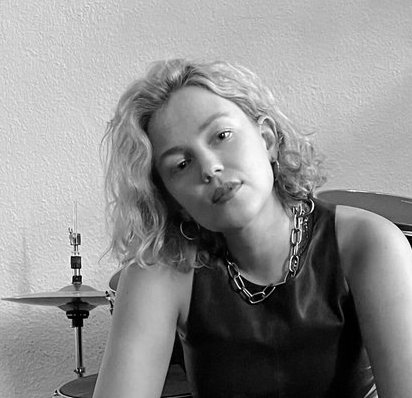Elisa R. Linn: Self-Organization from below to Strike the Border: The Berlin Wall as a Condom
Two public lectures are organized within the seminar AIDS, East Germany, EU, Global Capitalism, and Hardcore Theory, focusing on sexuality, gender, resistance, migration, and self-empowerment. The seminar is led by Marina Gržinić and Elisa R. Linn.
On December 2, 2024, Linn will present the lecture Border Territories, Migrant Others, and Surplus Value, using the using the example of the GDR to explore how both German states, during the AIDS crisis, stigmatized migrants—particularly guest and contract workers—and subjected them to a process of colonial and capitalist differentiation, exploiting them as an "industrial reserve army." Linn will illustrate how, following German reunification and the implementation of the “Asylum Compromise” (1993), a history of migration was not only denied but also accompanied by the obscuring of the colonial, racist, and necropolitical past and present of both states. Here, the lecture traces how, in the aftermath of the Berlin Wall's fall and the so-called opening of borders, new walls were erected in front of the “Euro-club” (Stuart Hall), turning the representation of borders, territory, and sovereignty into an irreversible historical imperative.
On December 3, 2024, Linn will present her lecture, Border Thinking and Striking the Border: The Constructedness of Identity and Notions of Migration, exploring the significance and impact of borders as well as "border thinking" (Gloria Anzaldúa/Walter D. Mignolo) on the formation of counterpublics and migratory aesthetics during the AIDS crisis on both sides of the Berlin Wall. Linn examines how border thinking is fundamental to understanding the self-organizing and coalition-building processes of activist and aesthetic life practices within marginalized communities that emerged beyond the mainstream public sphere, particularly in the GDR. How did, since the early 1980s, groups such as the queer, punk, and guest/contract worker communities challenge the categorizing logic of identity and resist the architectures of state representation and institutional subjectivation? And what lessons can be drawn from these practices for today's resistance against nativism and "borderization"?
Elisa R. Linn (Elisa Linn Roguszczak) is a writer, exhibition maker, and educator. She is the co-director and curator of Halle für Kunst Lüneburg e.V. and teaches at Leuphana University and Bard College Berlin. She holds a guest lectureship appointment at ZHdK in the summer semester of 2024 and has given lectures at The New School, Barnard College, Columbia University, Pratt Institute in New York City, Umeå Academy of Fine Arts, Städelschule, TU Berlin, and Royal Academy of Arts in London, among others. She is a graduate of the Whitney Independent Study Program and pursuing her Ph.D. in philosophy at the Academy of Fine Arts Vienna. She has held the interim professorship of the chair of Art Theory and Mediation, representing Prof. Dr. Kerstin Stakemeier at the Academy of Fine Arts Nuremberg in the summer semester of 2022. Linn contributed to various publications and magazines such as Mousse, ArtAsiaPacific, Frieze, artforum, Texte zur Kunst, BOMB, and Jacobin. She has curated projects at The Kitchen, South London Gallery, the Whitney Museum, The Bronx Museum, Museum Nivola in Sardinia, and the National Gallery Prague.
